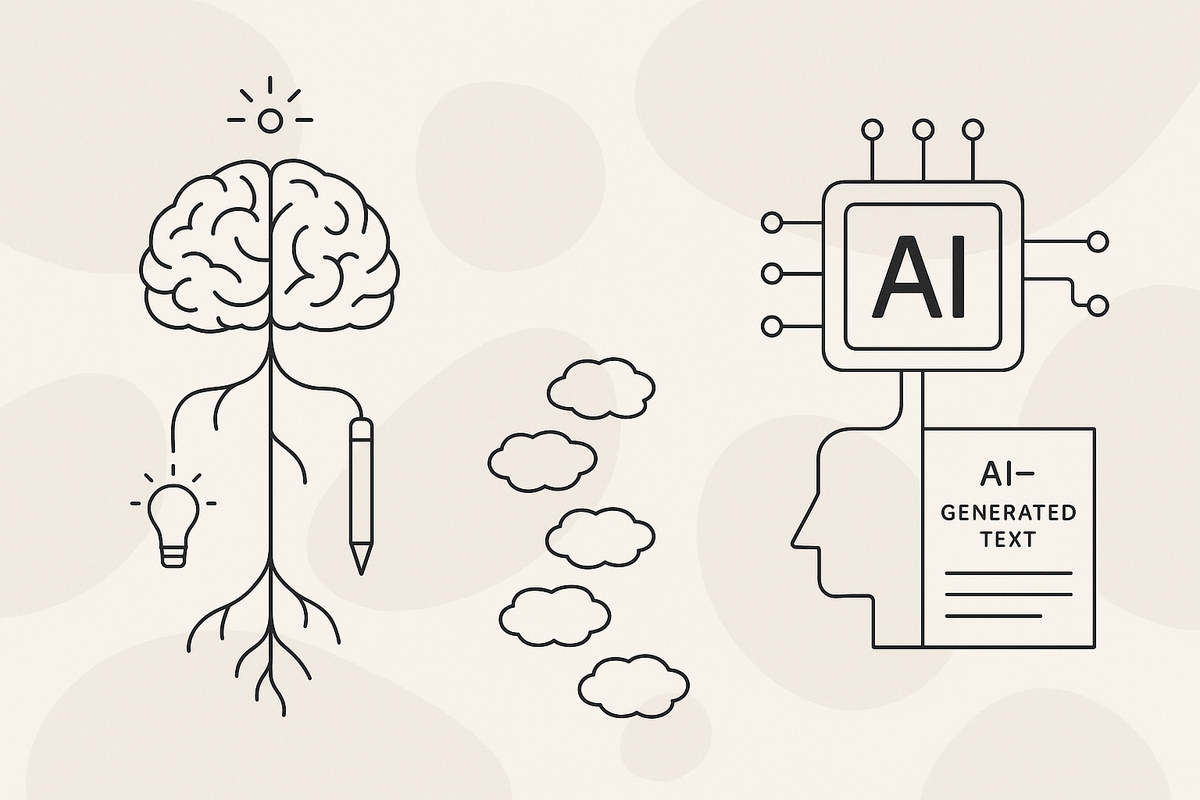AI, Creativity and “Cognitive Debt”

Recently, I came across this study from MIT about the use of LLMs while writing. The use of LLMs reduced effortful thinking in the minds of participants, suggesting cognitive offloading and “mental outsourcing.” This increases the risk of eroding critical thinking, memory, and deep engagement. According to this study, the use of LLM models creates a hidden cognitive cost—what the authors call “cognitive debt.”
Effortful thinking and deeper engagement with the task at hand are essential for the development of adaptive unconsciousness, which evolves with the experience of trial and error. Human intuition itself is a product or expression of the adaptive unconscious where the spark of creativity emerges.
Just as with any new technology, we humans are learning to coexist with this new AI technology. Thanks to human adaptability, both expected and unexpected influences of technology on our lives can be managed with conscious effort and learning.
I have been testing the use of AI models to automate my writing for months now, but time and again it has failed me. The use of LLMs while writing creates the type of junk that I would never want to read. My words seem harsh, but they reflect my frustration with the use of LLMs. Creativity by default cannot be automated; the tasks that involve the use of human intuition and creative insights cannot be copied by these LLMs. The answer to the question of why LLMs are not capable of mimicking human intelligence can be found in the fundamental nature of these LLM models and the way they function.
David Deutsch, in his book “The Beginning of Infinity” and many other writings, emphasizes how current AI technology lacks human creativity and intuitive insights. This does not mean that current AI models are of less value; they certainly have applications that far exceed any other technology we may have had in the past. The potential use and impact of AI in the future cannot be undermined. Considering the level of promise AI brings for the future and the impact it may have on the job market, one important question everyone, including me, is trying to ask is what differentiates the human mind from AI. What are the skills we can develop that would position us for the next wave of AI?
We now understand that with the rise of AI the most valuable future skills will be those that can’t be easily automated—skills rooted in human creativity, adaptability, judgment, and emotional intelligence.
Sam Altman himself has been asked this question, and one skill that has consistently echoed in his speeches is creativity. Human creativity is the single most important differentiator between humans and AI. Originality is the product of human intuition and creativity. Anything that disconnects you from your intuitive mind and creativity is detrimental to your personal growth. The very skill of creativity is what makes us human. Our human computer is the most important possession that we all have.
Personally, I am still learning to use AI as a writing assistant without allowing it to depreciate the value of my creativity.
Fundamentally, the skills that cannot be automated with AI will be in demand in the future. The use of AI has created an inclination towards automating daily writing tasks, which has an impact contrary to what is needed. Writing, as it is well understood, has been a way of structuring our thoughts. Effortful writing also helps develop the art of articulation and the ability to communicate ideas effectively.
Dependency on LLMs for writing may deteriorate the very skill that will enable us to make better use of AI models—writing effective prompts.
Interestingly, the participants—those who wrote essays without AI in the first three sessions and then used ChatGPT in the fourth—demonstrated higher strategic engagement and better memory in several clear ways, according to the study. They didn’t just accept what ChatGPT said—they engaged with it, filtered it, and strategically guided the output. We can do the same.
You can read the study here: Your Brain on ChatGPT.